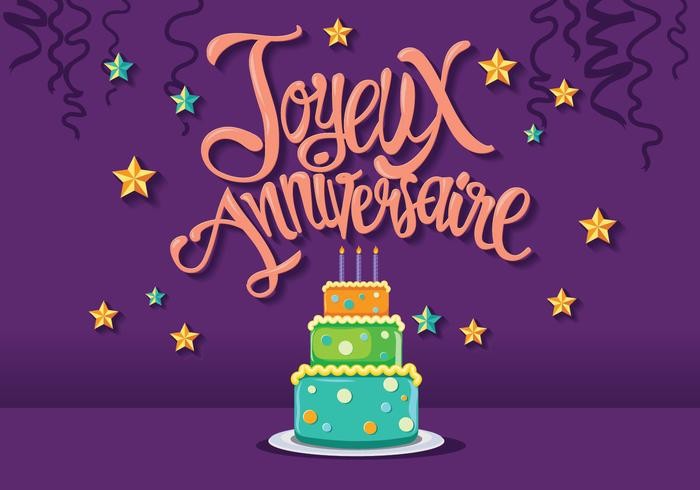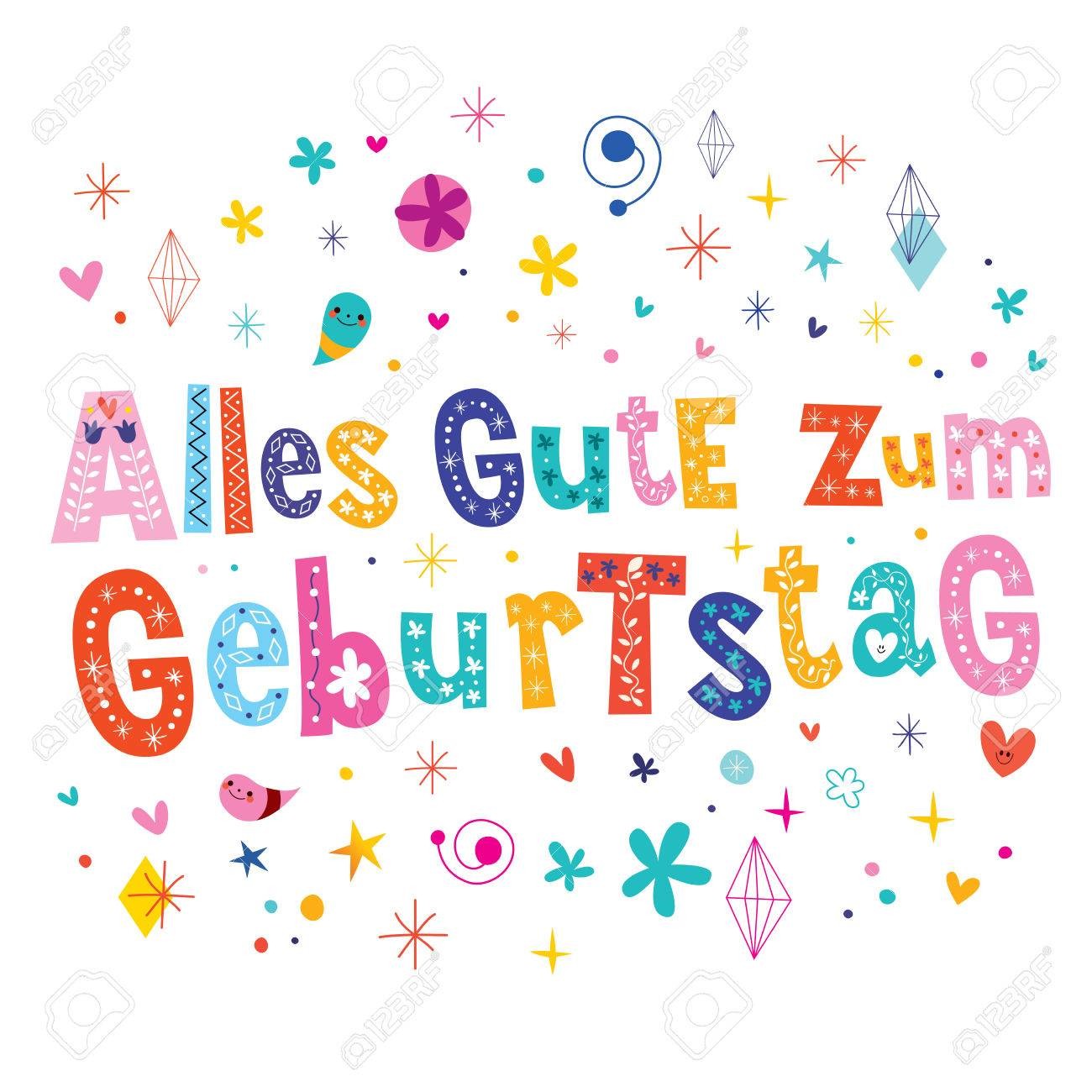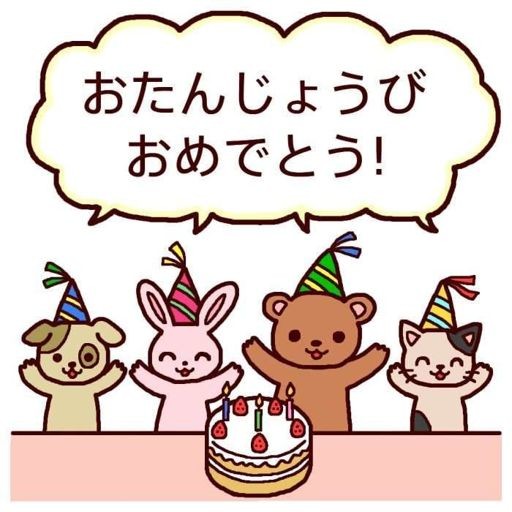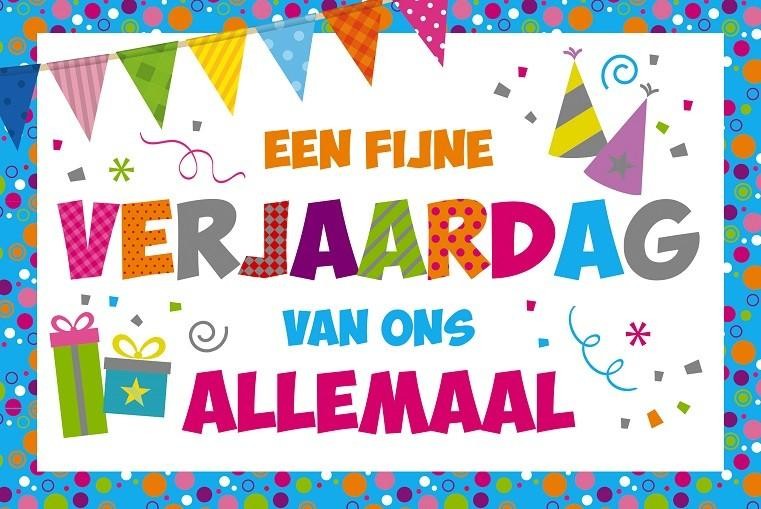How to say "Happy Birthday" in 25 different languages for travellers
Happy birthday to you! The presents, the cake, the party.
Birthdays are without a doubt, a happy occasion!
The traditions always vary around the world, but birthdays are one thing that we all have in common even if we speak different languages. So take this as an opportunity for more oral practice! After all, who doesn't want to wish people a happy birthday? You can even plan a birthday party in the language that you are studying in another country!
Have you ever asked if people sing a happy birthday song, like they do in English? Do they give presents? What about cake? Continue reading and learn how to say Happy birthday in a lot of languages around the world and the cultural meaning of it.
Happy birthday in Spanish: Feliz Cumpleaños
Translated as "Happy completed year", everyone's birthday is a big day of celebration in most Spanish speaking countries. In Mexico they sing their own birthday song, Las Mañanitas ("Little Mornings"). And instead of blowing out the candles on your cake, the birthday boy or girl has to eat the first bite without using cutlery or their hands. Generally, a family member pushing the their face into the cake, while singing Mordida! (bite). Mordida! And of course, a birthday party is not complete without the world famous piñata!
Happy birthday in French: Bon Anniversaire
In France, they wish for a good birthday. Birthday parties in France are very similar to those in English speaking countries. They celebrate with a big party, cake and presents and they sing "Joyeux Anniversaire" (Happy Birthday). The main difference is that in schools they have Wednesdays free and they go to school on Saturdays. So the majority of the birthday parties are celebrated on the Wednesday when all of the children are off school. In terms of Sundays, that is considered a family time. So most parents organise birthday parties then.

In Quebec, you will hear Bonne Fête! much more often than Bon anniversaire. Which literally translates as "happy party! "
Happy birthday in Italian: Buon Compleanno
What is the most significant thing about birthdays in Italy? They prefer to stay at home! The food and the cakes are usually homemade. But when it is your 18th birthday, everyone does everything possible. It is not strange to see a 18th birthday party with hundreds of people wishing you a "¡Buen cumpleaños! " "
Happy birthday in German: Alles Gute zum Geburtstag
The best way to translate this is as "The best of your birthday". Birthday parties started in Germany in 1200 AD and it was known as "kinderfest". In Germany, it is considered very bad luck to wish someone a happy birthday early, and they have a lot of fun celebrations based on your age. For example, when you turn 18 and they throw flour or break eggs over your head!

Happy birthday in Japanese: Ot 誕生 日Ot Ot ( Otanjoubi Omedetou Gozaimasu )
"Congratulations for your birthday! " In Japan, they celebrate Shichi-Go-San, which literally means 7-5-3. Those are lucky numbers and children go to a Shinto shrine on the 15th of November if they had a lucky birthday this year. The pray and give thanks to good health and strength. All the children go when they are three years old, boys go when they are five years old and girls go when they are seven years old.

Happy birthday in Korean: 생일 축하 ( Saeng-il Chugha )
Also translates as "Congratulations for your birthday! ". In Korea, 100 days after your birth, you celebrate your birthday! Parents celebrate the life of their children with a small feast and predict the future of the child according to items that he or she gathers. If the child is sick, the parents skip they day so that they don't bring bad luck to their child. They also send rice cakes to friends and family as much as possible because it symbolises a long life. Finally, they offer foods like rice to the Samshin Halmoni, the spirit of the grandmother, to take care of the baby.
Happy birthday in Chinese: 生日 快乐 ( Shēngrì Kuàilè )
In China, the majority of birthdays are celebrated when you are very young or are older than 50. On your birthday, it is common to eat long noodles without breaking them because it brings you good luck and a long life. Some people even wait until they are 60 years old to celebrate their first birthday! Also, there are some taboos about certain ages which men don't celebrate, like their 40th birthday and women don't celebrate their 30th, 33rd or 66th.
The literally translation of Shēngrì Kuàilè is something like "The birthday is happy".
Happy birthday in Cantonese: 生日 快樂 ( Sang Yat Fai Lok )
Careful with birthday presents! Never give someone a watch or a pair of shoes as a gift, because the words for them sound like "funeral", which is bad luck. And the gifts that you should give are wrapped up in red or gold paper, especially for an older person.
Happy birthday in Russian: С днем рождения (S Dnem Rozhdeniya)
In Russian, the tradition of the birthday is to pull the ears of the birthday boy or girl, a number of times according to their age. They say to the child: "Grow up, don't be noodles", so that the child grows strong. They don't sing a birthday song, but if the person survives a dangerous accident, like a car crash, they celebrate this day as their second birthday.
Happy birthday in Portuguese: Feliz Aniversário
Feliz aniversario means "Happy anniversary" and it is frequently translated as "Happy birthday". But it is more common to say "Parabéns" (Congratulations). Birthdays in Portugal are very similar to those in English speaking countries. But birthdays in Basil, like Russia, include pulling the ears for good luck. They also decorate their houses with brightly coloured paper flowers and banners for the celebrations.
Happy birthday in Dutch: Gefeliciteerd Met Je Verjaardag
"Congratulations for your birthday! " Birthdays are a big deal in the Netherlands And most people have a birthday calendar, that oddly enough, they keep in the bathroom. The calender remembers everyones birthday so you don't remember one (or try to skip your own! ) It is a major inconvenience for your loved ones. A 50th birthday is the celebrated more than others, because it is said that the man or woman "goes to Abraham" or "goes to Sarah", in reference to the biblical couple than had a child in their old age.

Happy birthday in Afrikaans: Veels Geluk Met Jou Verjaarsdag
Like in Dutch, this saying means "Congratulations for your birthday". Do you see a consistent theme here? Most countries say "congratulations" instead of "happy". In South Africa, the 21st birthday is the most important. Parents generally give their children a key made of gold silver or aluminium, to symbolise unlocking the future and all that it has to offer.
Happy birthday in Polish: Wszystkiego Najlepszego Z Okazji Urodzin
"All the best for your birthday! " "In Poland, they have their own birthday song that says: "Sto lat, sto lat, niech żyje żyje nam" (One hundred years, they can live for one hundred years). It is also common to have a separate birthday celebration called "imieniny". It is a celebration on the day of the feast of the saint that the person was named after!
Happy birthday in Swedish: Grattis På Födelsedagen
"Birthday congratulations! " The Swedish love celebrating birthdays and they often wake the child up bringing breakfast and presents to their bed. They sing their own birthday song, "ja, ma du leva", ("Yes you are alive"). Traditionally they celebrate with cake covered in green marzipan, presents wrapped in the colours of the Swedish flag: blue and gold.
Happy birthday en Danish: Tillykke Med Fødselsdagen
"Best wishes for your birthday! " The Danish make birthdays a BIG deal. They really love their flag, and to join a miniature flag pole to your birthday cake (or on top of your birthday cake) is necessary. They also have a lot of fun with the Danish birthday song. The birthday boy or girl chooses the instruments that the singers pretend to play while they sing! (Such as air guitar, except a band or complete orchestra). It is a very lively event.
Happy birthday in Norwegian: Gratulerer Med Dagen
"Congratulations for the day! " In Norway is it a great time celebrating the birthday "rounds": 30, 40, 50 etc. They sing "Hurra for deg som fyller ditt år" (Hurray for completing the year) and have a big party. For school children the birthday girl or boy dances in front of the class while the others sing the Norwegian happy birthday song.
Happy birthday in Finnish: Hyvää Syntymäpäivää
Even though most of the times you say "Hyvää syntymäpäivää", you can also say "Onnea syntymäpäivänäsi", which is more common on birthday cards or on Facebook. The Finnish celebrate the Name day, where you were given your name, and is different each year. The day you are given your name, you can celebrate!
Happy birthday in Tagalog: Maligayang Kaarawan
"Happy wishes! " Since the Philippines is predominantly catholic, birthdays often start with a mass. They have four main milestones: 1st birthday, 7th, 18th (for girls) and 21st (for boys). The seventh birthday is celebrates as the age that children take their first steps into adulthood. It is the age that children are most responsible for their actions and they start primary school. The 18th birthday for a girl is called her "debut" and it is celebrated with 18 flowers, 18 candles and 18 treasures.
Happy birthday in Swahili: Furaha ya Kuzaliwa
"Congratulations for the day of birth". Birthday's are not an important thing in the majority of countries that speak Swahili, and a lot of the time it is only the day of birth that is celebrated. The birth of a baby is a reason to have a big community party. Each group has their own traditional values some as simple as the first trip between the baby and mother.
Happy birthday in Hindi: जन्मदिन की शुभकामनाएं ( Janmadin Kee Shubhakaamanaen )
"Best wishes for your birthday". In many parts of India, birthdays are celebrated with western practices as much as Hindu. A birthday generally starts with a blessing in a temple, abundant prayers and a mix of rice and turmeric paste, anointed at the front. Then continuing the day with more western traditions like the happy birthday song and cutting the cake.
Happy birthday in Bengali: শুভ জন্মদিন ( Śubha Janmadina )
Birthday celebrations aren't very common in Bangladesh. But when a baby is born, they give out sweets between family and friends to celebrate. They also celebrate with a small naming ceremony.
Happy birthday in Tamil: பிறந்தநாள் வாழ்த்துக்கள் (Piṟantanāḷ Vāḻttukkaḷ)
This translates as "To wish success and happiness on your birthday". In Sri Lanka, they celebrate a babies first birthday when it is 31 days old and they receive a special present from their parents. It is generally a good luck charm, that the baby keeps with them for their rest of their life. It is also a common tradition to go to a sanctuary on your birthday and make good actions to attract good karma.
Happy birthday in Telugu: పుట్టినరోజు శుభాకాంక్షలు ( Puṭṭinarōju śubhākāṅkṣalu )
In the Andhra Pradesh region which speaks Telugu, children often decorate their hair for their birthday. The knit a lot of flowers (think about the plaited hair in the movie Tangled) and they get presents of turmeric rice from their parents.
Happy birthday in Malayalam: ജന്മദിനാശംസകൾ ( Janmadināśansakaḷ )
In the southern state of Kerala, India, birthdays don't always follow the Gregorian calender. A lot of southern Indians follow the Malayalam calender instead. This system calculates birthdays based on astrology. A lot of the time, their birthdays are not celebrated on the day they were born but on their astrology birthday.
Happy birthday in Arabic: عيد مولد سعيد ( Eyd Mawlid Saeid )
"Happy celebration of birth". Birthday celebrations are not always a priority in Arabic speaking countries. But most of the celebrations are like those of western cultures. In Egypt, some people celebrate the birth of the baby by submerging it in the river Nile, a ceremony that derived from Egyptian times. On the seventh day after the birth, they celebrate with a celebration called subu, with a lot of flowers, fruits and rituals for good luck.
Happy birthday in Esperanto: Feliĉan Naskiĝtagon
Although Esperanto is a artificially constructed language, it has a tie of birthdays: a Esperanto holiday, the birthday of Zamenhof. Ludwik Lejzer Zamenhof created Esperanto as a second universal language and to promote internationalism. Then, people that spoke the language use his birthday as an excuse to reunite.
Spread good wishes throughout the world!
There you have it! Now you are an expert polyglot in wishing happy birthday to all of the world. It always means a lot to wish a happy birthday, but to hear it in your mother tongue from a foreign friend is really special. It shows that you put thought and effort into them.
So now you can practice saying them with your friends around the world. Even if it is only to say happy birthday in other languages and spread a little happiness.
What are your favourite ways to wish someone a happy birthday? Do you have a favourite language to say it in? Share your opinion in the comments!
Photo gallery
Content available in other languages
Want to have your own Erasmus blog?
If you are experiencing living abroad, you're an avid traveller or want to promote the city where you live... create your own blog and share your adventures!
I want to create my Erasmus blog! →







Comments (0 comments)